Fleurs du Mal Magazine


Or see the index

Acht vertalingen van gedichten van T.T. Cloete (1924)
door Carina van der Walt & Geno Spoormans
6.
T.T. Cloete
Schering en inslag
die begin was ordinêr: geel maan, plaasstoep
nou hou ek jou voellose hand vas
as jy “Here, hoor my, Here help” roep
in jou diep ingeslape gebed
ek is bestem om my prewel in te las
“Here, word wakker” sag saamgebid
drie-uur in die nag help ek jou loop na die toilet,
laat ek jou slap liggaam regop sit
ek voel jou terugdink aan die dik los
glansende lang stort van jou harebos
diep in die nag
in ’n onvrugbare terugverlang
na jou jongmeisie-regop haarveergang
met die klein sampioene ferm maar malvalekkersag
dan vee ek jou nat
oë af in myne en ek vat
aan jou heupe en ek interpoleer
my gebede en verlangens met joune heen en weer
sigsag
skering en inslag
ek sien hoe jy oor die 100 tree-hekkies gly
met die skoot oop en die dye
ek sien die sweet op jou moeë voorkop
jy kon die flinkste klop
toe daar nog kalk was in jou bene
ek hou
jou vas ek dans met jou
jou skoot is sag voelbaar toegevou
vol liefde steriel
jy het die allersagste vel
’n fyn antieke griekse profiel
ek proe jou oorlel
snags as ek jou sag hoor snik
en jou nat wronge om jou wange skik
T.T. Cloete
schering en inslag
het begon heel gewoontjes: volle maan, een boerderij
nu hou ik jouw voelloze hand vast
terwijl je in jouw diep ingeslapen gebed
“Here, help” roept “Here, hoor mij”
ik ben bestemd om mijn geprevel aan te passen
en “Here, wordt wakker” daartussenin te lassen
om drie uur in de nacht help ik je naar het toilet,
heb ik jouw slappe lichaam rechtop gezet
ik voel hoe je terugdenkt aan je dikke bos haar
hoe je die glanzend los liet met één handgebaar
diep in de nacht
vol onvruchtbaar terugverlangen
naar al jouw meisjesachtige springveergangen
je kleine ferme champignons, als suikerspek zo zacht
veeg ik jouw natte ogen
af in die van mij, pak jou hoge
heupen en ik interpoleer
mijn gebeden en verlangens met die van jou heen en weer
zigzag
schering en inslag
ik zie je nog zwevend over de hordes glijden
met je schoot open en je dijen
zweet verschijnt op je voorhoofd als een waas
eens was jij iedereen de baas
toen er nog kalk was in jou botten
ik hou
je vast en dans met jou
je schoot is nu een teer gesloten vouw
liefdevol steriel
jij hebt het allerzachtste velletje
een fijn klassiek profiel
ik proef je oorlelletje
s ‘nachts als ik je zacht hoor snikken
en mijn handen jouw natte wrongen om je wangen schikken
T.T. Cloete 8 gedichten: Vertalingen uit het Zuid-Afrikaans door Carina van der Walt & Geno Spoormans 2010
(wordt vervolgd)
fleursdumal.nl magazine
More in: Archive C-D, T .T. Cloete, Walt & Spoormans
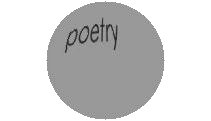
Acht vertalingen van gedichten van T.T. Cloete (1924)
door Carina van der Walt & Geno Spoormans
5. T.T. CLOETE Seepbelsondagoggend Wat is plotseling in die gevoelige weer? Ons sit daar in die koelte gedemp en praat of swygend in die tuin, eerder meer swygend. Uit die hemel en uit die straat van die buurt om ons huis assimileer ons vreugde. Die lyster kom sit en pik wurms uit die gras, die honde speel onder die bome. Die insekte skrik van rooi na wit na blou na geel blomme. Ons velvoel die son se prik. Ons fotosinteer met die welige koel blare en sit en kyk aangegryp hoe die buurvrou oorkant met die jong glansende hare haar lieflike sagte kind innig vashou in haar liefderyke kort vrugbare jare. Ineens is daar vir ’n kosbare hartseer oral plek in gras en voëls, daar is lelies en blare daarvoor en ons is daar, die weer en die lughemel, dit waai in ’n dun bries. Ons ontdek ons sê geen woorde meer vir mekaar nie. Daar kom ’n moment delikaat en só heel dat ’n enkele uur die waarde van ’n ganse bestaan het, met ’n oordaad so gelade, so volmaak, dat die mees bedaarde lispel dit rinkelend gaan stukkend praat. T.T. CLOETE Zondagochtendzeepbel Wat is er plotseling aan de hand met het weer? We zitten zachtjes in de tuin te praten of te zwijgen in de schaduw, al hoe meer te zwijgen. We assimileren hemel en straten van de buurt rondom ons huis en baten elke keer onze vreugde uit. De lijster komt wormen pikken uit het gras, de honden spelen onder de bomen. De insecten schrikken van rode naar witte naar blauwe naar gele bloemen. We voelen de zon op onze vellen prikken. Fotosynthese tussen deze weelderige koele blaren en de aangrijpende verschijning aan de overkant van onze jonge buurvrouw met de glanzende haren haar zachte kind tussen borst en hand in haar liefderijke kort vruchtbare jaren. Ineens is er voor kostbaar verdriet plek te over tussen gras en vogels, tussen lelies en blaren en wij zijn erbij, om wat dit biedt het weer, de hemellucht en het waaien van een dunne bries. We ontdekken dit maar spreken niet tegen elkaar. Soms is er een moment zo delicaat en zo heel dat slechts een enkel uur de waarde van een vol leven heeft, met overdaad zo beladen, zo volmaakt, dat zelfs het meest bedaarde gelispel haar rinkelend in stukken praat.
T.T. Cloete 8 gedichten: Vertalingen uit het Zuid-Afrikaans door Carina van der Walt & Geno Spoormans 2010
(wordt vervolgd)
fleursdumal.nl magazine
More in: Archive C-D, T .T. Cloete, Walt & Spoormans
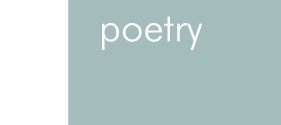
Acht vertalingen van gedichten van T.T. Cloete (1924)
door Carina van der Walt & Geno Spoormans
4.
T.T. Cloete
Silhoeët van Beatrice Dante Par. 1: 112-114 Frontaal gaan vanaf die voorkop die ronding oor in die verfynde wip van die neuspunt, buig dan trug en weer op sag in die welwende bolip. Soos ’n klein watergolf puil die onderlip wat diep duik trug na die ken met die klein kuil en oorgaan in ’n volronde kaaklyn. ’n Kruik is die hals. Daarvandaan langsaam gaan die bors fyn uittas na die tuit en golf na die buikstootjie terug geskaam. Die lyn loop in die lang bobeen uit in ’n effe boog wat stadig gestrek plooi tot die sagte knieronding, terug buig en oorgaan in die effense skeenboog, afglooi af aarde toe tot in die ronde voetbrug. Dít is soos die frontlyn golwend afstrek. Agter van bo na onder loop die ronde skedel af na die dun nek en is daar ’n soepel wonder van konvekse skouers, die rug se konkawe krul af deur die vlesige boude, die dye en kuite se swel. … Tussen die baie dwalinge só vervul bewaar sy die getroetelde model van die kurwe, die diep ingebore istinto wat neig in die ronding van die appel of die haai en die leeu of die koedoe se grasie en in haar entelegiese sublieme lynwil.
T.T. Cloete
Silhouet van Beatrice Dante Par. 1: 112-114 Frontaal gaat vanaf het voorhoofd de ronding over in een verfijnde wip van de neuspunt, buigt dan terug en veroorlooft zich de zachte welving naar de bovenlip. Zoals een kleine watergolf pruilt de onderlip en neemt een diepe duik terug naar de kin met het kuiltje dat schuilt in de volronde kaaklijn. Een kruik is de hals. Langzaam reikt van daar de borst delicaat uit voorbij de tuit en golft na het buikje terug in een beschaamd gebaar. De lijn loopt van het bovenbeen uit in een lichte boog die zich strekt en plooit tot een zachte knieronding, terug buigt naar de ijle scheenboog, afglooit naar de aarde in de ronde voetbrug. Zo is het front golvend uitgelijnd. Van achteren en van boven naar beneden loopt de ronde schedel af en verdwijnt in de nek, een wonder gesneden uit convexe schouders en een ruggelingse draaiing dan af langs vlezige billen, dijen en kuiten die zwellen … Tussen al deze dwalingen en lustvolle verfraaiing bewaart ze de geliefkoosde modellen van curven, het diepgewortelde is tinto dat neigt in de rondingen van de appel of de gratie van de haai, de leeuw of de koedoe en in haar entelechisch verheven lijnspel.
T.T. Cloete 8 gedichten: Vertalingen uit het Zuid-Afrikaans door Carina van der Walt & Geno Spoormans 2010
(wordt vervolgd)
fleursdumal.nl magazine
More in: Archive C-D, T .T. Cloete, Walt & Spoormans
![]()
William Cartwright
(1611-1643)
ON A VIRTUOUS YOUNG GENTLEWOMAN
THAT DIED SUDDENLY
He who to Heaven more Heaven doth annex,
Whose lowest thought was above all our sex,
Accounted nothing death but t’ be reprieved,
And died as free from sickness as she lived.
Others are dragg’d away, or must be driven,
She only saw her time and stept to Heaven;
Where seraphims view all her glories o’er,
As one return’d that had been there before.
For while she did this lower world adorn,
Her body seem’d rather assumed than born;
So rarified, advanced, so pure and whole,
That body might have been another’s soul;
And equally a miracle it were
That she could die, or that she could live here.
William Cartwright poetry
fleursdumal.nl magazine
More in: Archive C-D, CLASSIC POETRY
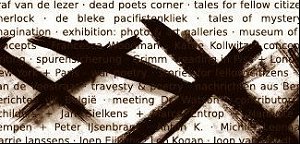
Acht vertalingen van gedichten van T.T. Cloete (1924)
door Carina van der Walt & Geno Spoormans
3.
T.T. Cloete
Eiewysheid
ek groei aarde toe krom ek hel lewendig skuins hoe meer jare ek haal hoe meer raak my kinkels bestendig ek moet my vertikaal handhaaf ek moet sekondegetrou onthou om asem te haal om koppig uit te hou en te beweeg krapskeef en aaphinkende ek moet uitputtend aanhou oefen om deur die nag te leef ek moet vratig bly drink en eet en sweet en hondhyg ek moet vermoeiend bly dink ín teen die groot vergeet
T.T. Cloete
Eigenwijsheid
ik groei krom naar de aarde toe mijn lijf verzinkt
schuin en hoe meer jaren ik haal
hoe meer mijn kabel bestendig kinkt
verticaal
handhaaf ik mij ter nauw
en stipt adem ik elke haal
waarop ik koppig uithou
ik beweeg in kreeftsgang
hinkepink als een aap mijn oefeningen getrouw
en hou de nacht in bedwang
ik moet vretig blijven drinken
en eten en zweten
en hijgen als een hond tot vermoeiends blijven denken
tegen het grote vergeten
T.T. Cloete 8 gedichten: Vertalingen uit het Zuid-Afrikaans door Carina van der Walt & Geno Spoormans 2010
(wordt vervolgd)
fleursdumal.nl magazine
More in: Archive C-D, T .T. Cloete, Walt & Spoormans
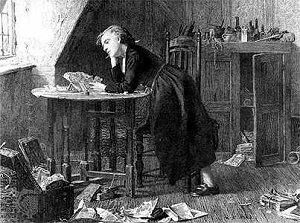
Thomas Chatterton
(1752-1770)
AN EXCELENTE BALADE OF CHARITIE
N Virgynë the sweltrie sun gan sheene,
And hotte upon the mees did caste his raie;
The apple rodded from its palie greene,
And the mole peare did bende the leafy spraie;
The peede chelandri sunge the livelong daie;
‘Twas nowe the pride, the manhode of the yeare,
And eke the grounde was dighte in its moste defte aumere.
The sun was glemeing in the midde of daie,
Deadde still the aire, and eke the welken blue,
When from the sea arist in drear arraie
A hepe of cloudes of sable sullen hue,
The which full fast unto the woodlande drewe,
Hiltring attenes the sunnis fetive face,
And the blacke tempeste swolne and gatherd up apace.
Beneathe an holme, faste by a pathwaie side,
Which dide unto Seyncte Godwine’s covent lede,
A hapless pilgrim moneynge did abide.
Pore in his newe, ungentle in his weede,
Longe bretful of the miseries of neede,
Where from the hail-stone coulde the almer flie?
He had no housen theere, ne anie covent nie.
Look in his glommed face, his sprighte there scanne;
Howe woe-be-gone, how withered, forwynd, deade!
Haste to thie church-glebe-house, asshrewed manne!
Haste to thie kiste, thie onlie dortoure bedde.
Cale, as the claie whiche will gre on thie hedde,
Is Charitie and Love aminge highe elves;
Knightis and Barons live for pleasure and themselves.
The gatherd storme is rype; the bigge drops falle;
The forswat meadowes smethe, and drenche the raine;
The comyng ghastness do the cattle pall,
And the full flockes are drivynge ore the plaine;
Dashde from the cloudes the waters flott againe;
The welkin opes; the yellow levynne flies;
And the hot fierie smothe in the wide lowings dies.
Liste! now the thunder’s rattling clymmynge sound
Cheves slowlie on, and then embollen clangs,
Shakes the hie spyre, and losst, dispended, drown’d,
Still on the gallard eare of terroure hanges;
The windes are up; the lofty elmen swanges;
Again the levynne and the thunder poures,
And the full cloudes are braste attenes in stonen showers.
Spurreynge his palfrie oere the watrie plaine,
The Abbote of Seyncte Godwynes convente came;
His chapournette was drented with the reine,
And his pencte gyrdle met with mickle shame;
He aynewarde tolde his bederoll at the same;
The storme encreasen, and he drew aside,
With the mist almes craver neere to the holme to bide.
His cope was all of Lyncolne clothe so fyne,
With a gold button fasten’d neere his chynne;
His autremete was edged with golden twynne,
And his shoone pyke a loverds mighte have binne;
Full well it shewn he thoughten coste no sinne:
The trammels of the palfrye pleasde his sighte,
For the horse-millanare his head with roses dighte.
“An almes, sir prieste!” the droppynge pilgrim saide,
“O! let me waite within your covente dore,
Till the sunne sheneth hie above our heade,
And the loude tempeste of the aire is oer;
Helpless and ould am I alas! and poor;
No house, ne friend, ne moneie in my pouche;
All yatte I call my owne is this my silver crouche.”
“Varlet,” replyd the Abbatte, “cease your dinne;
This is no season almes and prayers to give;
Mie porter never lets a faitour in;
None touch mie rynge who not in honour live.”
And now the sonne with the blacke cloudes did stryve,
And shettynge on the grounde his glairie raie,
The Abbatte spurrde his steede, and eftsoones roadde awaie.
Once moe the skie was blacke, the thunder rolde;
Faste reyneynge oer the plaine a prieste was seen;
Ne dighte full proude, ne buttoned up in golde;
His cope and jape were graie, and eke were clene;
A Limitoure he was of order seene;
And from the pathwaie side then turned hee,
Where the pore almer laie binethe the holmen tree.
“An almes, sir priest!” the droppynge pilgrim sayde,
“For sweete Seyncte Marie and your order sake.”
The Limitoure then loosen’d his pouche threade,
And did thereoute a groate of silver take;
The mister pilgrim dyd for halline shake.
“Here take this silver, it maie eathe thie care;
We are Goddes stewards all, nete of oure owne we bare.
“But ah! unhailie pilgrim, lerne of me,
Scathe anie give a rentrolle to their Lorde.
Here take my semecope, thou arte bare I see;
Tis thyne; the Seynctes will give me mie rewarde.”
He left the pilgrim, and his waie aborde.
Virgynne and hallie Seyncte, who sitte yn gloure,
Or give the mittee will, or give the gode man power.
Thomas Chatterton poetry
fleursdumal.nl magazine
More in: Archive C-D, Thomas Chatterton
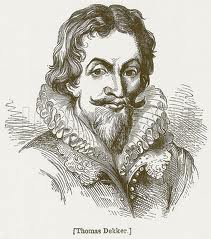
Thomas Dekker
(1570-1632)
COUNTRY GLEE
HAYMAKERS, rakers, reapers, and mowers,
Wait on your Summer-queen;
Dress up with musk-rose her eglantine bowers,
Daffodils strew the green;
Sing, dance, and play,
‘Tis holiday;
The sun does bravely shine
On our ears of corn.
Rich as a pearl
Comes every girl,
This is mine, this is mine, this is mine;
Let us die, ere away they be borne.
Bow to the Sun, to our queen, and that fair one
Come to behold our sports:
Each bonny lass here is counted a rare one,
As those in a prince’s courts.
These and we
With country glee,
Will teach the woods to resound,
And the hills with echoes hollow:
Skipping lambs
Their bleating dams,
‘Mongst kids shall trip it round;
For joy thus our wenches we follow.
Wind, jolly huntsmen, your neat bugles shrilly,
Hounds make a lusty cry;
Spring up, you falconers, the partridges freely,
Then let your brave hawks fly.
Horses amain,
Over ridge, over plain,
The dogs have the stag in chase:
‘Tis a sport to content a king.
So ho ho! through the skies
How the proud bird flies,
And sousing kills with a grace!
Now the deer falls; hark, how they ring!
‘Country Glee’ was originally published in The Sun’s Darling (1656).
Thomas Dekker poetry
fleursdumal.nl magazine
More in: Archive C-D, CLASSIC POETRY

John White Chadwick
(1840-1904)
The hardest lot
O look upon the face of a dead friend
Is hard; but ’tis not more than we can bear
If, haply, we can see peace written there,–
Peace after pain, and welcome so the end,
Whate’er the past, whatever death may send.
Yea, and that face a gracious smile may wear,
If love till death was perfect, sweet, and fair;
But there is woe from which may God defend:
To look upon our friendship lying dead,
While we live on, and eat, and drink, and sleep–
Mere bodies from which all the soul has fled–
And that dead thing year after year to keep
Locked in cold silence in its dreamless bed:–
There must be hell while there is such a deep.
“The Hardest Lot” is reprinted from American Sonnets. Ed. William Sharp. London: Walter Scott, 1889
John White Chadwick poetry
fleursdumal.nl magazine
More in: Archive C-D, CLASSIC POETRY

Acht vertalingen van gedichten van T.T. Cloete (1924)
door Carina van der Walt & Geno Spoormans
2
T.T. Cloete
Uitgedun
Ek dank U dat ek Heer
soos van ouds vanoggend weer
my baard mag skeer.
Vroeër was ek gesteld
op seks en soma, op geweld
en eer en geld.
Nou is ek goedkoop
gesteld op bloedomloop
en brood en stroop.
T.T. Cloete
Uitgedund
Ik dank U Heer
dat ik vanochtend als weleer
mijn baard weer scheer.
Vroeger was ik gesteld
op seks en soma, op geweld
en eer en geld.
Nou ben ik goedkoop
gesteld op bloedsomloop
en brood met stroop.
T.T. Cloete 8 gedichten: Vertalingen uit het Zuid-Afrikaans door Carina van der Walt & Geno Spoormans 2010
fleursdumal.nl magazine
More in: Archive C-D, T .T. Cloete, Walt & Spoormans
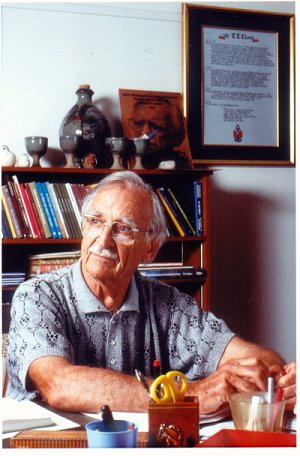
Vertalingen van acht gedichten van T.T. Cloete (1924)
door Carina van der Walt & Geno Spoormans
1
T.T.Cloete
Marilyn Monroe foto in blou
(Foto van Milton H. Green, Los Angeles, 1954)
een jonge dame draagt haar lippen op haar mond – Pierre Kemp
volskaamte skrylings sit Marilyn Monroe
in ‘n volstrek
leë blou
ruim vertrek
die spanbroek van plooilose blou materiaal
is ‘n vliesdun vel
wat alles wat binne is kaal
na buite egalig sag gestrek nerfeus vertel
asof dit by alles pas
– die kop hang geluidloos effens laggend agteroor –
hou sy die leë glas in die linkerhand vas
wie luister kan goed in die volstreke stilte hoor
hoe skaamgroot die lippige mond
oop lag pront
pruilend nat rooi rond
gewelf soos ‘n gekoesterde soet kriewelige wond
vir die nakende detail in die bygesprek
– met ‘n omweg kan bysake aandag trek
op hoofsake – is slegs die een skoen uitgetrek
elke besonderheid is op sy plek
deur die volstrekte stilte heen hoor groot
praat die deurgefluisterde skoot
oop en bloot
nakont vlesig groot
wat gloei onder die vals-egte dubbele huid
juig deur alle lippe en wange uit
dat dit tuit dat dit tuit
uitjubelend gierig uitnodigend uit
vrouwees Simone de Beauvoir
is deur huid en deur haar
oop en openbaar
gekleed sigbaar
oog en oor laat hulle nie bedrieg nie
huid en haar weet nie van lieg nie
T.T. Cloete
Marilyn Monroe foto in blauw
(Foto van Milton H. Green, Los Angeles, 1954)
een jonge dame draagt haar lippen op haar mond – Pierre Kemp
schaamtevol schrijlings bezet Marilyn Monroe
in klein bestek
een leeg blauw
ruim vertrek
de rekbroek van plooiloze blauwe stof raakt
vliesdun aan de huid en vertelt
wat daarbinnen nerveus naakt
rimpelloos zacht naar buiten pelt
alsof het bij elke gelegenheid past
– het hoofd kantelt geluidloos lachend of nog zachter –
houdt zij een leeg glas in de linkerhand vast
wie luistert hoort goed in de stilte daarachter
hoe de lippige mond
schaamtegroot open lacht pront
pruilend nat rood rond
gewelfd zoals een onweerstaanbaar jeukende wond
als niets verhullend detail voor à propos gesprekken
– met een omweg kunnen bijzaken de aandacht trekken
op hoofdzaken – vond ze het nodig een schoen uit te trekken
elk aspect moet immers belangstelling wekken
door deze volstrekte stilte heen hoort groot
spraak de lang beloofde schoot
open en bloot
nakont vlesig groot
wat gloeit onder de vals-echte dubbele huid
juicht tussen alle lippen en wangen luid
naar buiten tot het tuit en tuit
jubelend gulzig en vrij uit
vrouw-zijn Simone de Beauvoir
is door huid en door haar
open en openbaar
gekleed zichtbaar
ogen en oren laten zich niet bedriegen
huid en haar weten niet van liegen
T.T. Cloete 8 gedichten: Vertalingen uit het Zuid-Afrikaans door Carina van der Walt & Geno Spoormans 2010
(wordt vervolgd)
fleursdumal.nl magazine
More in: Archive C-D, T .T. Cloete, Walt & Spoormans
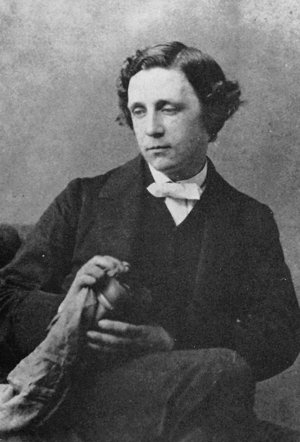
Lewis Carroll
(1832 — 1898)
Echoes
Lady Clara Vere de Vere
Was eight years old, she said:
Every ringlet, lightly shaken, ran itself in golden thread.
She took her little porringer:
Of me she shall not win renown:
For the baseness of its nature shall have strength to drag her
down.
“Sisters and brothers, little Maid?
There stands the Inspector at thy door:
Like a dog, he hunts for boys who know not two and two are four.”
“Kind words are more than coronets,”
She said, and wondering looked at me:
“It is the dead unhappy night, and I must hurry home to tea.”
Lewis Carroll poetry
fleursdumal.nl magazine
More in: Archive C-D, Carroll, Lewis
.jpg)
Gabriele D’Annunzio
(1863-1938)
Lungo l’affrico
Grazia del ciel, come soavemente
ti miri ne la terra abbeverata,
anima fatta bella dal suo pianto!
O in mille e mille specchi sorridente
grazia, che da nuvola sei nata
come la voluttà nasce dal pianto,
musica nel mio canto
ota t’effondi, che non è fugace,
per me trasfigurata in alta pace
a chi l’ascolti.
Nascente Luna, in cielo esigua come
il sopracciglio de la giovinetta
e la midolla de la nova canna,
sì che il più lieve ramo ti nasconde
e l’occhio mio, se ti smarrisce, a pena
ti ritrova, pel sogno che l’appanna,
Luna, il rio che s’avvalla
senza parola erboso anche ti vide;
e per ogni fil d’erba ti sorride,
solo a te sola.
O nere e bianche rondini, tra notte
e alba, tra vespro e notte, o bianche e nere
ospiti lungo l’Affrico notturno!
Volan elle sì basso che la molle
erba sfioran coi petti, e dal piacere
il loro volo sembra fatto azzurro.
Sopra non ha sussurro
l’arbore grande, se ben trema sempre.
Non tesse il volo intorno a le mie tempie
fresche ghirlande?
E non promette ogni lor breve grido
un ben che forse il cuore ignora e forse
indovina se udendo ne trasale?
S’attardan quasi immemori del nido,
e sul margine dove son trascorse
par si prolunghi il fremito dell’ale.
Tutta la terra pare
argilla offerta all’opera d’amore,
un nunzio il grido, e il vespero che muore
un’alba certa.
![]()
Gabriele D’Annunzio poetry
fleursdumal.nl magazine
More in: Archive C-D, D'Annunzio, Gabriele
Thank you for reading Fleurs du Mal - magazine for art & literature